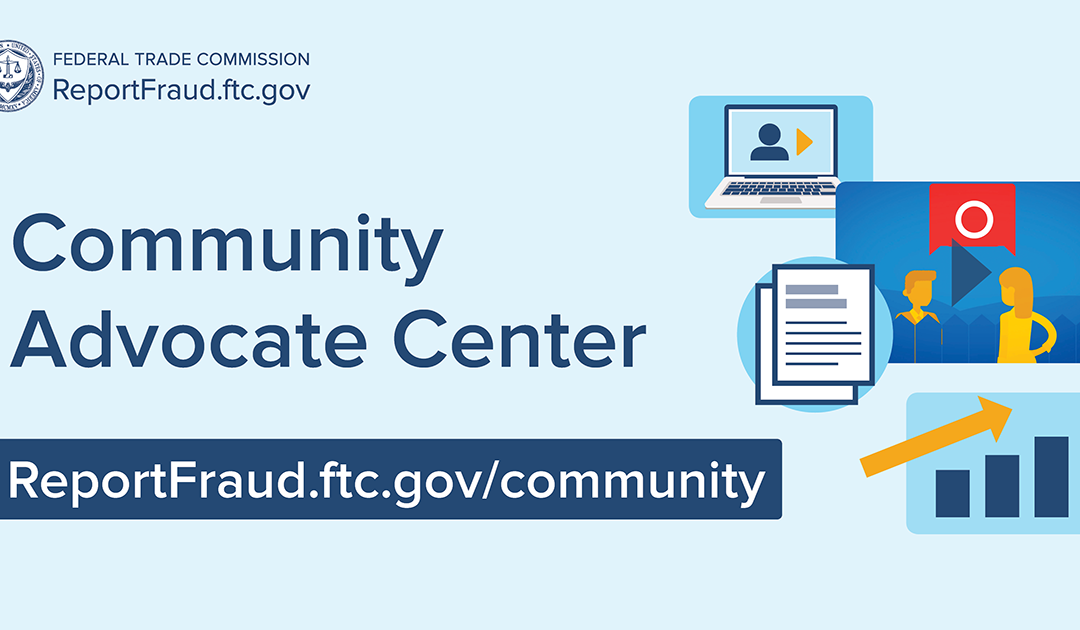
by Scott Muniz | Mar 3, 2021 | Security
This article was originally posted by the FTC. See the original article here.
When ReportFraud.ftc.gov launched in late 2020, it made telling the FTC about scams much easier. But here’s the thing: we know we’re still not hearing from lots of communities around the country. Not hearing those stories means we might not learn about the problems they experience, or bring cases to stop the bad practices and get money back. Which is, of course, always the goal.
But a new Community Advocate Center is aiming to address that. It gives community legal aid organizations a way to report fraud and bad business practices to the FTC — on behalf of their clients. These organizations that give people access to free and low-cost legal services often serve exactly the communities that the FTC wants to hear more from, including communities of color, speakers of other languages, and lower-income communities.
When advocates tell us people’s stories (or when people tell us directly), the FTC can give advice on next steps, including how to try to recover their money. For example, each year, people use their credit cards to pay scammers millions upon millions of dollars. That’s money people should usually be able to get back, and ReportFraud.ftc.gov tells people how.
If you know someone who works in a legal aid organization, please share this post with them. Send them to ReportFraud.ftc.gov/community to learn more. And tell them that the FTC would be happy to have them join Legal Services Corporation, Inc., the National Legal Aid & Defender Association, the National Association for Consumer Law, and the National Association for Consumer Advocates in supporting this initiative.
Meanwhile, spread the word. If you’ve spotted a scam, tell the FTC at ReportFraud.ftc.gov.
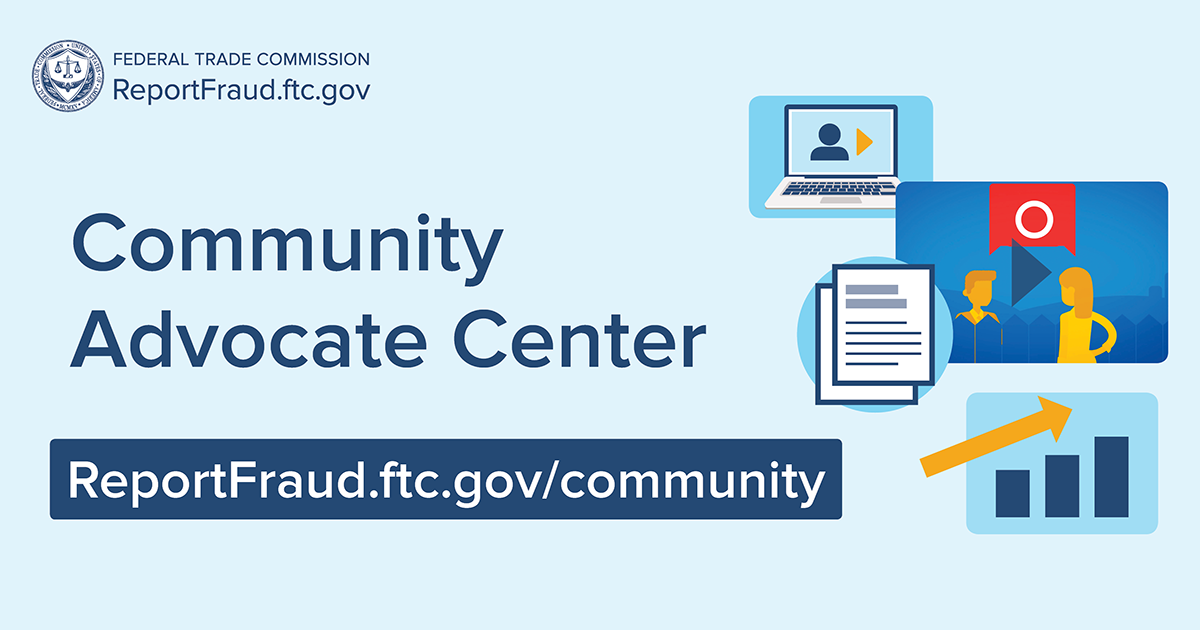
Brought to you by Dr. Ware, Microsoft Office 365 Silver Partner, Charleston SC.
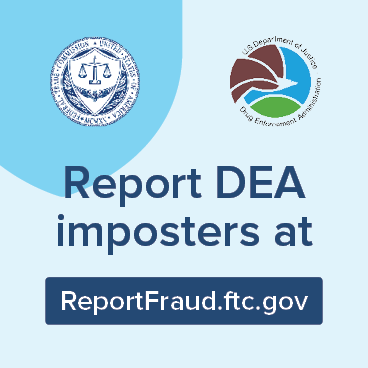
by Scott Muniz | Mar 3, 2021 | Security
This article was originally posted by the FTC. See the original article here.
We’re getting reports about scammers pretending to be Drug Enforcement Administration (DEA) agents. They’re trying to get your money and personal information, and using alarming phone calls to do it.
The DEA is alerting people to the scam. Their message: It’s not the DEA calling.
The scammers use fake names and badge numbers. Sometimes they use the names of real DEA agents and may even text photos of what look like legitimate law enforcement credentials. They may have information about you, like part or all of your Social Security number (SSN). When they target medical practitioners, like doctors and pharmacists, they may have their National Provider Identifier number or state license number.
about you, like part or all of your Social Security number (SSN). When they target medical practitioners, like doctors and pharmacists, they may have their National Provider Identifier number or state license number.
The scammers’ stories vary, but usually go something like this: They’ve seized a car packed with illegal drugs. It was rented in your name. Or, they found identifying papers with your name in the car, at some drug-linked location, or on a bank account used for money laundering. You’re going to be arrested for drug trafficking and money laundering.
The fake agent comes up with a reason for you to transfer money to him — maybe for safekeeping, to pay a fine, or to prove you’re willing to cooperate. They’ll tell you how to send the money, often by wire transfer or by buying gift cards and telling them the numbers on the back of the cards.
Here’s what you need to know:
- The DEA will never call and ask for your SSN or other personal information. It won’t ask you to pay anything. And it won’t call to say you’re under investigation or threaten you with arrest.
- Your caller ID might show a real DEA phone number, but that’s not the real DEA calling. Computers make it easy to show any number on caller ID. Don’t trust what you see there.
- Never give your SSN to anyone who contacts you. Don’t confirm the last 4 digits. And don’t give a bank account or credit card number — ever — to anybody who contacts you asking for it.
- Anyone who tells you to wire money, pay with a gift card, or send cash or cryptocurrency is a scammer. Always. No matter who they say they are.
If you get a call like this, hang up. Tell friends and family members about it. Then, tell us about it too, at ReportFraud.ftc.gov.
Brought to you by Dr. Ware, Microsoft Office 365 Silver Partner, Charleston SC.
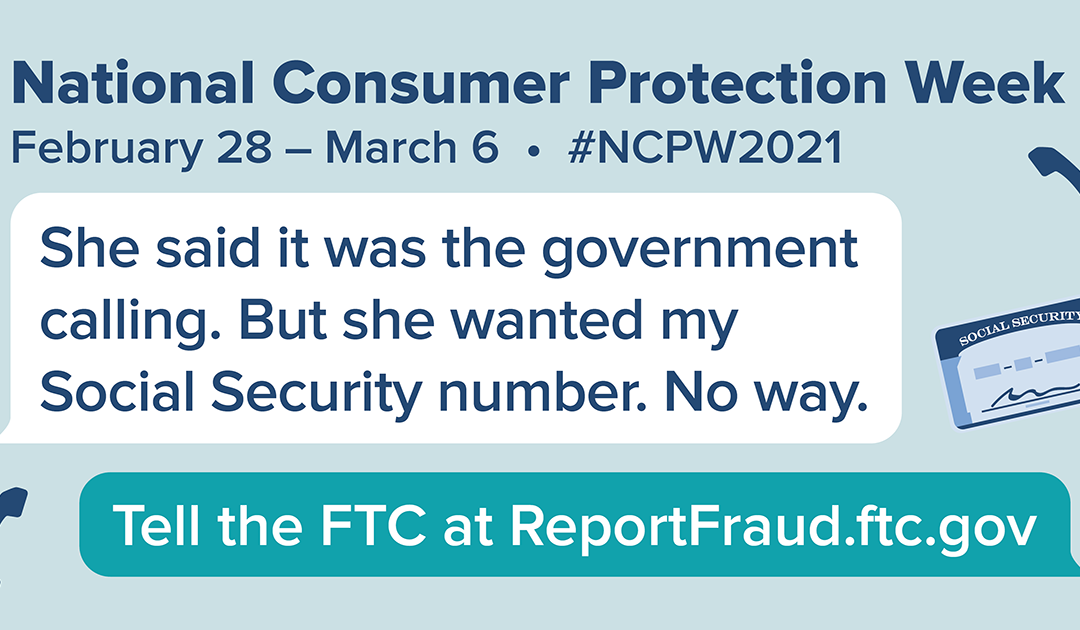
by Scott Muniz | Mar 3, 2021 | Security
This article was originally posted by the FTC. See the original article here.
Lots of people are having trouble sleeping, thanks to the pandemic and all the parts of our lives it’s affecting. And it doesn’t help when you get a call saying you owe the government money. Oh, and, they add, you’ll go to jail if you don’t pay up immediately. That’s a scam, and nothing to lose sleep over. For those who are a little more cut off from people than usual, these calls might feel more real and worrying than they are. If you know someone might be cut off from others right now, reach out to them to make sure they know these calls are scams.
Here are some things you might share with them about government imposters.
First, plenty of people have spotted calls, texts, and emails from bogus government officials. In 2020, people reported losing more than $174 million to government imposter scams, with a median loss of $1,250.
Second, you can share a few ways to spot these scammers in the act:
- Don’t trust caller ID. Scammers manipulate caller ID to look like the call is coming from an official government number. Look up the agency’s number yourself, if you’re concerned, and give them a call. But don’t use the number in caller ID.
- Government agencies like the Internal Revenue Service (IRS) or the Social Security Administration (SSA) won’t call, text, or email you to say that you owe money.
- Nobody legit will ever tell you to pay with gift cards, money transfers, or cryptocurrency.
- Never share personal information with anyone who contacts you. If you’re worried, look up the government agency’s information yourself to check with them.
Sharing these tips might just help someone you care about sleep a little more soundly. And, of course, if you spot a scammer, talk about it, and then tell the FTC at ReportFraud.ftc.gov. Each report helps protect your community.
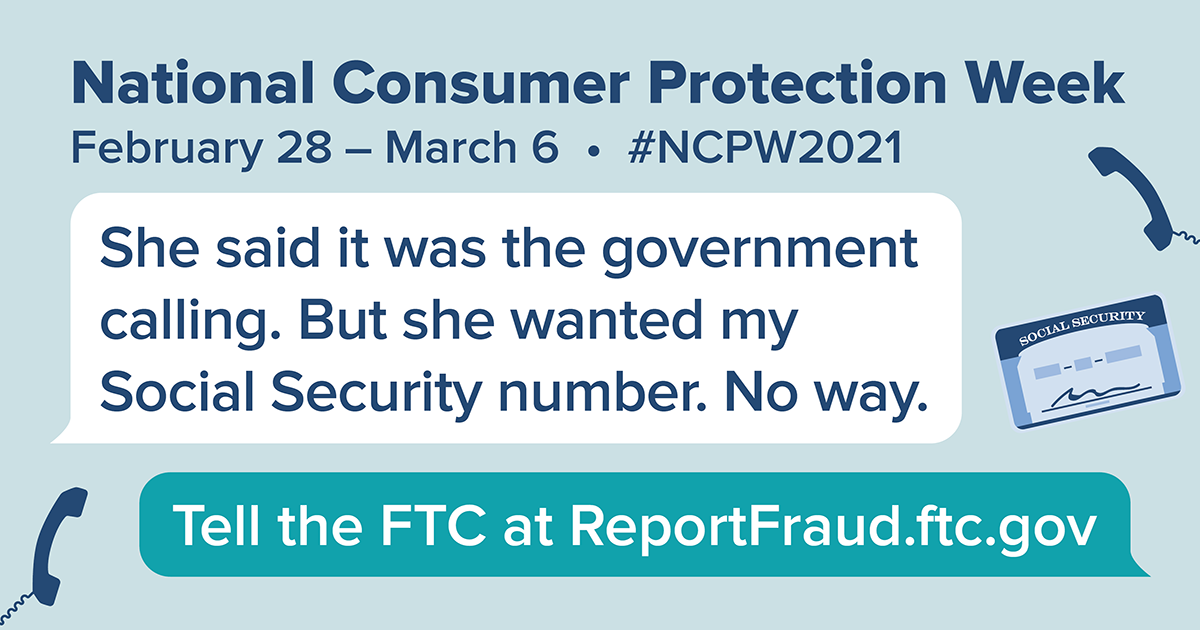
Brought to you by Dr. Ware, Microsoft Office 365 Silver Partner, Charleston SC.
by Scott Muniz | Mar 2, 2021 | Security, Technology
This article is contributed. See the original author and article here.
Microsoft has released out-of-band security updates to address vulnerabilities affecting Microsoft Exchange Server 2013, 2016, and 2019. A remote attacker can exploit three remote code execution vulnerabilities—CVE-2021-26857, CVE-2021-26858, and CVE-2021-27065—to take control of an affected system and can exploit one vulnerability—CVE-2021-26855—to obtain access to sensitive information. These vulnerabilities are being actively exploited in the wild.
CISA encourages users and administrators to review the Microsoft blog post and apply the necessary updates or workarounds.
by Scott Muniz | Mar 2, 2021 | Security, Technology
This article is contributed. See the original author and article here.
The Apache Software Foundation has released a security advisory to address a vulnerability in multiple versions of Apache Tomcat 9.0. An attacker could exploit this vulnerability to access sensitive information.
CISA encourages users and administrators to review the Apache security advisory for CVE-2021-25122 and upgrade to the appropriate version.







Recent Comments